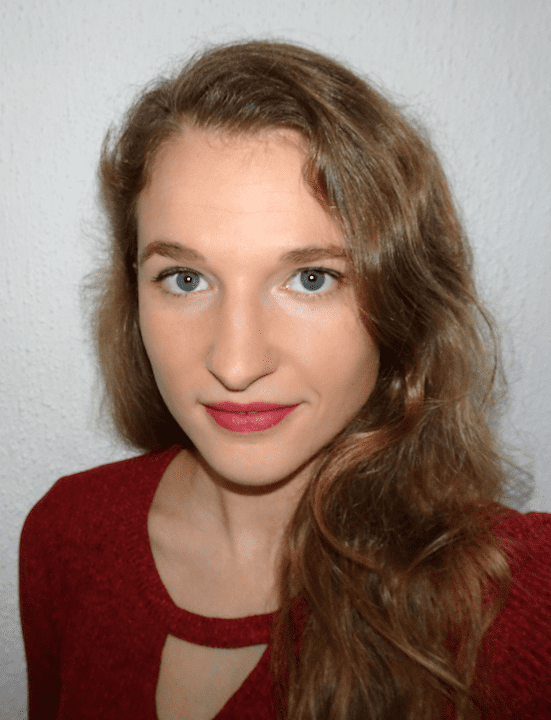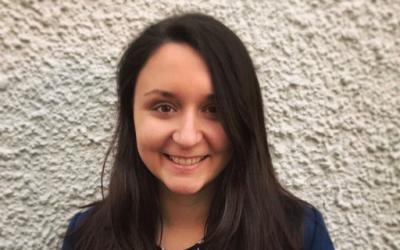What do you work on?
My project is centred around the question: when is the optimal time to stop evaluating new information and commit to a decision? Many real-world decisions involve options presented in series, and only having the opportunity to choose an option when it is presented. Accept a job offer or keep looking? Go on a date with your Tinder match or keep swiping right? These are examples of optimal stopping problems. Previous research has found that people generally do not make the best decision when presented with an optimal stopping problem. I am investigating why people make suboptimal decisions, who is susceptible to suboptimal decision making, and whether it is possible to improve decision making.
“I think online research will increase the overall pace of research in my field and the number of studies being conducted.”
What did you do using Gorilla?
I used Gorilla to build an online version of the fiancée task. The fiancée task is designed as follows.
In phase 1 of the experiment, participants were asked to rate 90 different faces of their preferred sex (i.e. which sex they would like to date) on their attractiveness. In total they rated each face twice using a slider scale from very unattractive to very attractive.
In phase 2, participants encountered 8 faces in sequence and they had to accept or reject each one as their date. They were shown a total of 6 sequences. The primary two measurements are the number of faces sampled before choice, and the rank of the chosen face. By analysing the position and rank of the chosen image, we can determine whether people sample differently compared to an ideal observer model, and whether their strategy is effectively suboptimal.
For this part of the study I recruited 20 participants through Prolific. The goal is to replicate oversampling effects found in the lab, but I have yet to complete my data analysis.
The fiancée task is actually part of a larger study in which it is only one of three conditions. The other two conditions are a classic best choice task (a number-based task) and a new variation of the fiancée task. In this way, I can test whether participant biases in decision making relate to the textual-numeric versus image-based nature of the stimuli or to differing probability distributions of option values.
What was your study protocol?
The study starts with some general information about the study, followed by a consent box and a drop-down menu where participants have to choose whether they would like to rate male or female faces. After they have done this, participants are direct to either the male version or the female version of the experiment. The actual experiments starts with phase 1, where participants are asked to rate faces on their attractiveness. This is followed by an explanation of the second phase of the study. The experiment finishes after participants have completed phase 2.
Did you include any special features in your study to ensure good quality data? If so, what did you do?
I included 9 attention checks (5%) in phase 1 of my study to ensure that participants were following instructions and not just moving the slider at random to get through the experiment as fast as possible. Participants were first shown a black cross that disappeared after a random interval between 1 and 5 seconds. They were instructed to press ‘next’ only after the cross had disappeared. This was repeated with a red cross. Attention checks appeared at random throughout the experiment.
“Gorilla’s stand-out feature is its intuitive design and user-friendliness.”
Has this study been published?
No, but it has been presented as a poster.
How do you think online research is going to change your field?
I am currently conducting mostly behavioural experiments. Online methods are well-suited for this type of research and in my experience it speeds up the entire research process. Therefore, I think online research will increase the overall pace of research in my field and the number of studies being conducted.
What is the biggest advantage of online research methods?
The continuous access to vast numbers of participants.
What is the most exciting piece of research you’ve ever done?
As an undergrad, I did an extracurricular research placement at the ophthalmology department of the Amsterdam Medical Centre. Having no background in ophthalmology whatsoever, this was an exciting challenge and if payed off: I managed to get a first-author publication in Cornea.
For you, what is the stand-out feature in Gorilla?
For me, working with Gorilla was a great way to start my PhD. It did not take long to understand the interface, and I finished designing my experiment in just a few days. So I’d say Gorilla’s stand-out feature is its intuitive design and user-friendliness.
How did Gorilla make your life or research better, easier or faster?
Gorilla spared me the trouble of having to code my experiments in Matlab, which would have taken far more time and would not have allowed for such speedy data collection as was possible now through Prolific.
On a personal level, what are you most proud of?
I am proud of where I am now. I have moved to a different country to do a PhD and that turned out to be one of the best decisions of my life.
When you’re not working, what do you enjoy doing?
I enjoy spending time with friends, exploring the country (and the pubs), and perfecting my routines on the trampoline
What science book have you read recently that you’d recommend to others?
It’s not really hard-core science, but some parts are relatable nonetheless and it’s definitely worth a read!
This is going to hurt by Adam Kay




